10 garden fencing ideas that are the new way top designers recommend to add a decorative twist
Garden fencing ideas are a new designer trend, a little focus on the detail that goes a long way
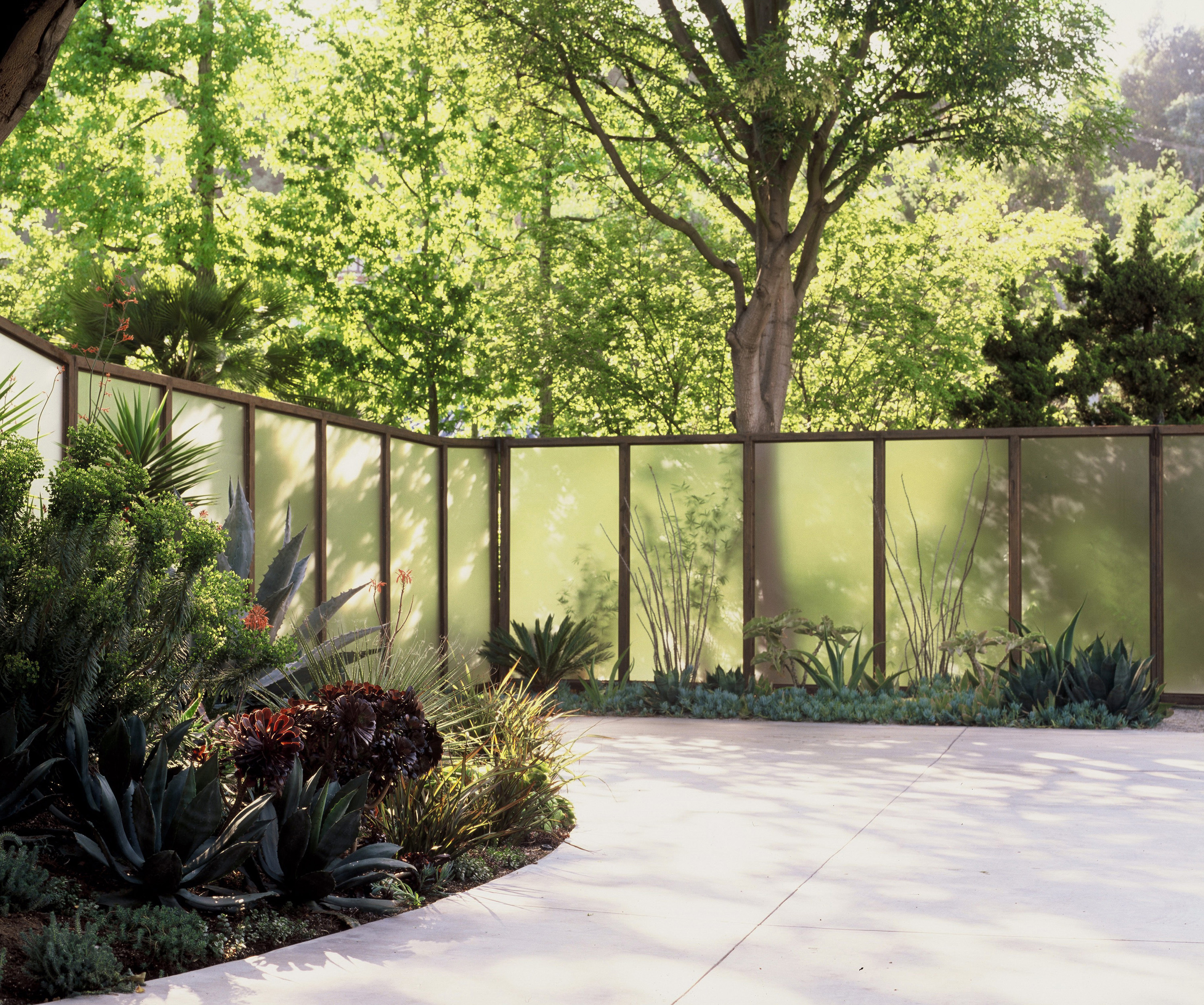
Admittedly, garden fencing ideas may not be the part of your outdoor space you're pouring your heart and soul into. Less beautiful than planting, less enjoyable than seating or dining, fences tend to be an afterthought - understandably.
But many top garden designers and landscapers and hoping to change all that. “Fences play a defining role in the overall feel of a space,” observes the New York City-based garden designer Julie Farris. “They’re sort of like an outdoor wallpaper in three dimensions.”
So what kind of wallpaper do you want for your garden? What mood do you want to elicit? And what purpose does your fencing have - do you want to feel safe and enclosed? Do you want to maximize the green quotient around you? Do you want to keep out noise, or let in light? Maybe you want to capitalize on every available space for growing food. Or maybe you want to create internal dividers to screen off parts of the garden or put safety fencing around the pool.
What you choose to go with the rest of your modern garden ideas will set the tone for your external space - fortunately, there are so many ways to get it right.
Garden fencing ideas
1. Opt for decorative cottage-style fencing
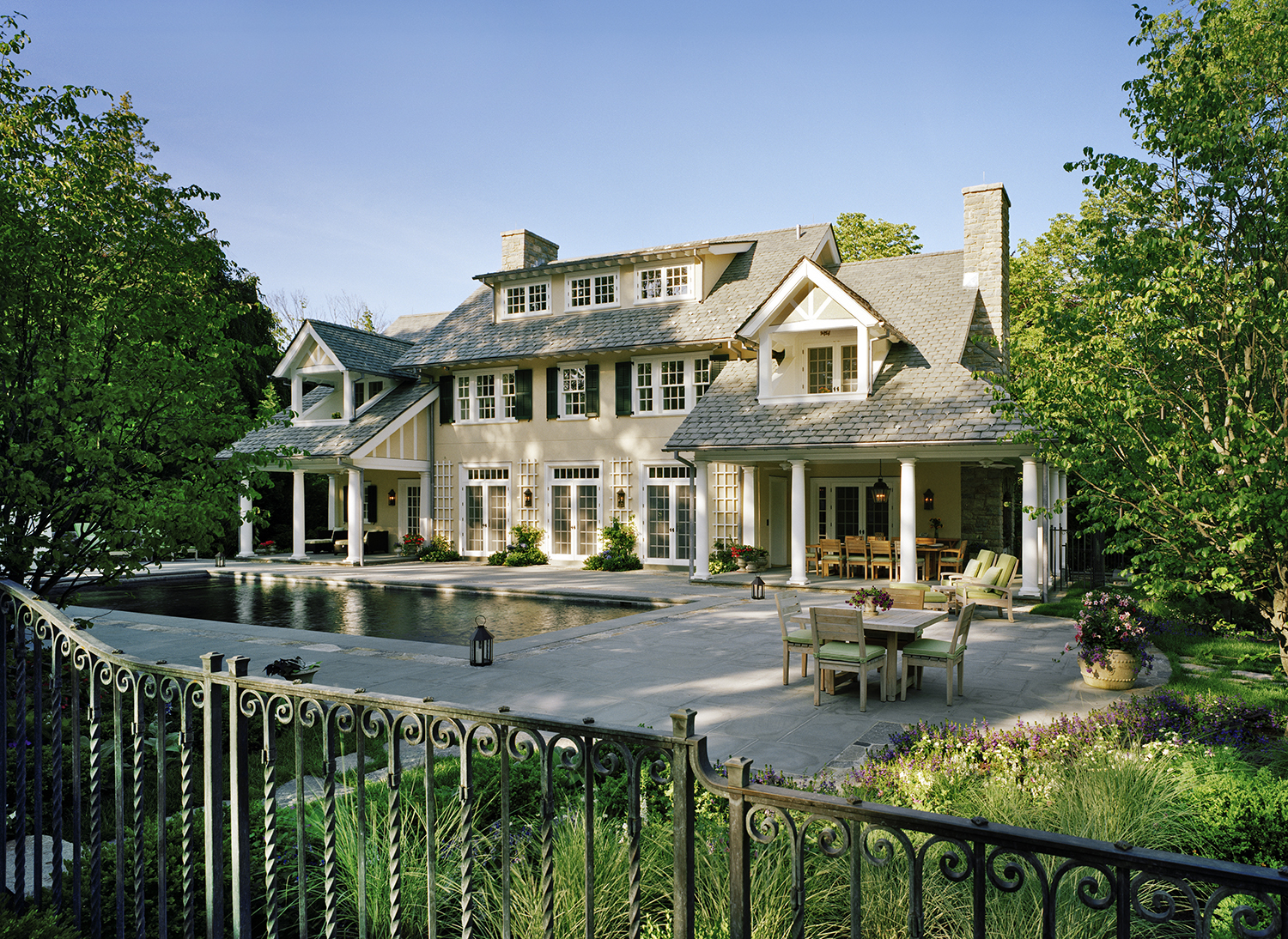
If the surroundings permit, the fence can be the decorative feature itself. Inspired by English Tudor cottages, for this family house the East coast-based landscape architect Renée Byers wanted to create something that “looked beautiful all year round, as a piece of architecture unto itself,” she says.
Recalling an earlier era of craftsmanship and detailing, she collaborated with an “amazing” metalsmith who crafted this elegant fence from solid bronze, complete with beautiful curled bands, florets, scrolls and penny end punctuation points - whilst also meeting all the technical regulations.
“We knew this fence would be visible,” says Renée. “We wanted to create a real gem with a historical nod, but not in a way that hits you over the head.”
The Livingetc newsletters are your inside source for what’s shaping interiors now - and what’s next. Discover trend forecasts, smart style ideas, and curated shopping inspiration that brings design to life. Subscribe today and stay ahead of the curve.
2. Let light through with translucent panels
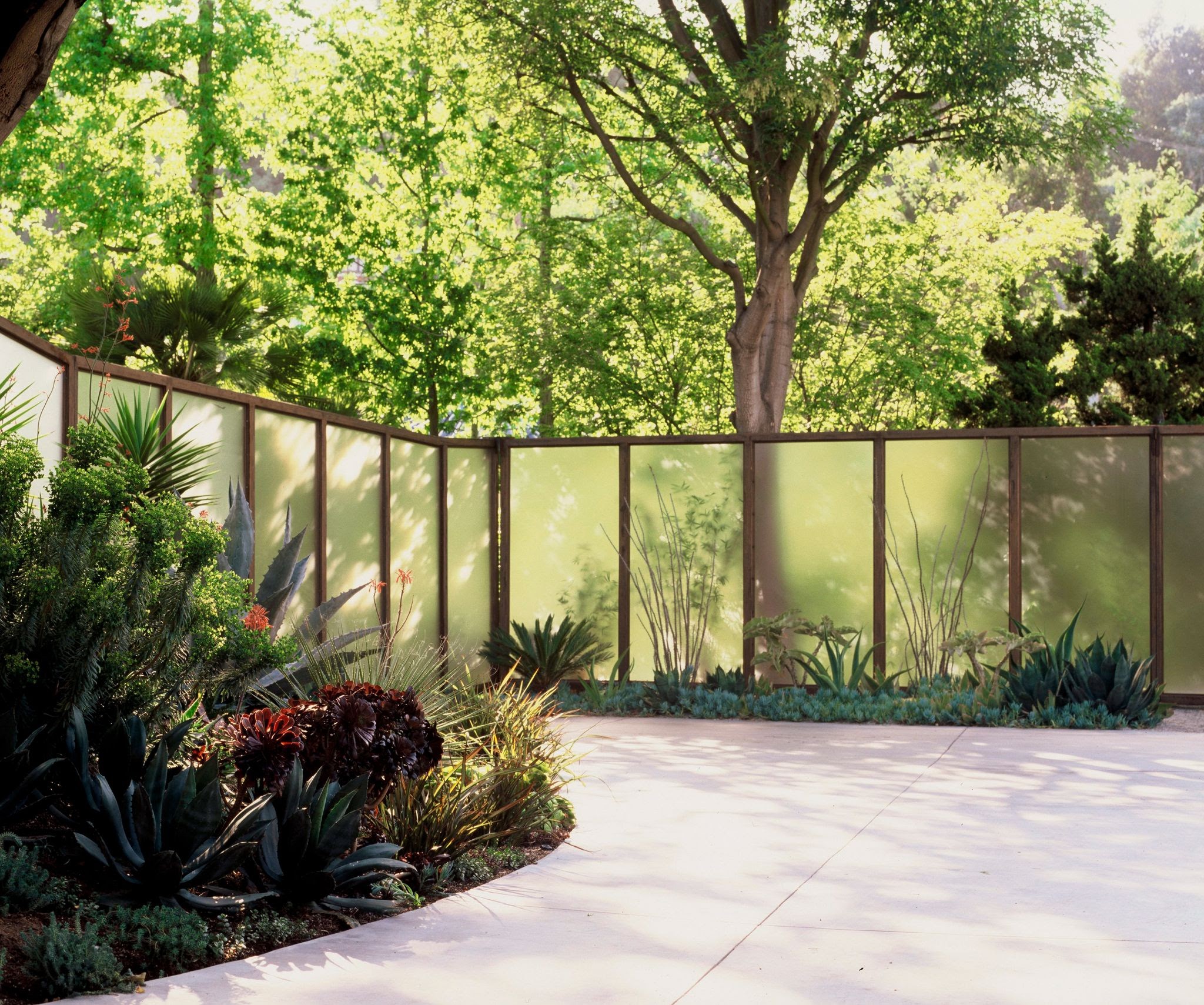
“Most often when we build fences, the first thing we do is screen them out with planting, so it is rare to have a fence that is highly focal like this one.” When the prolific landscape architect Judy Kameon of Elysian Landscapes, who has created gardens for the likes of Sofia Coppola, Mike D of the Beastie Boys and Marc Jacobs, came to this Hollywood Hills property set steeply into the hills, she didn’t want to waste an inch of the highly-prized flat open space here.
Her solution was to make a virtue of the screen, which encloses a front motor court. Inspired by the work of the mid-century Case Study architect Craig Ellwood, the fence has been designed so as to allow colors, foliage and light patterns to come through - it’s backlit so that you get that both night and day.
Judy created a graphic tableau on the inside of the courtyard garden by filling the planting space with cactus and succulents, while the leafy foliage planted on the exterior reinforces the verdant canopy of the surrounding trees.
And it’s a relatively low maintenance garden, she says: “The screen materials are a naturally rusted steel frame with inset frosted plexiglass panels, which gardeners can safely hose off or clean with an air blower without worry of damage or cracking.”
3. Go minimal and modern
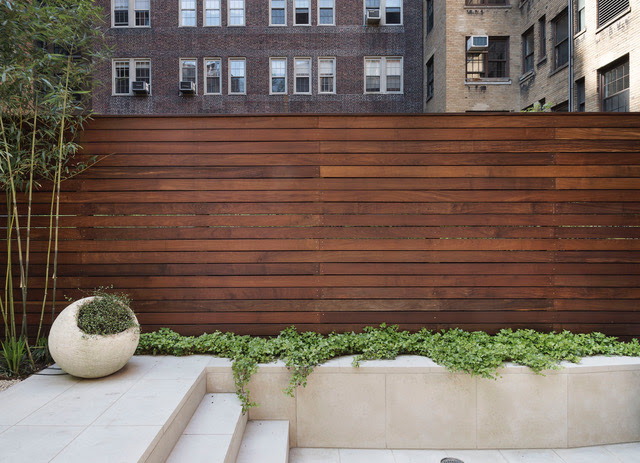
“I like fences that kind of disappear,” says Julie Farris, a Brooklyn-based landscape designer and founder of XS Space. “Well, not really, but ones that provide a backdrop that are natural and classic, and that weather well so that the garden can take the foreground.”
Julie avoids woods such as pine that feature knots - “because they tend to be distracting and busy in a small space”, and here has gone for the rich warmth of Ipe wood, with a height of 6ft, “enough to maintain a sense of privacy”.
The horizontal lay of the wood “lends a more modern feel and elongates the space,” Julie says, and the slats are laid with narrow gaps in order to optimize airflow through the garden (“Brooklyn gardens can get hot and buggy!”).
As the light shards through the gaps, it creates the illusion of floating panes and transparency, without affecting privacy. When considering privacy fences, Julie also recommends softening the elevations with different types of native vines: “Climbing Hydrangea tends to do well and has a beautifully fragrant and delicate white flower, while Virginia Creeper adds seasonal interest and doesn’t require much maintenance.”
4. Go for permanence with a stone wall
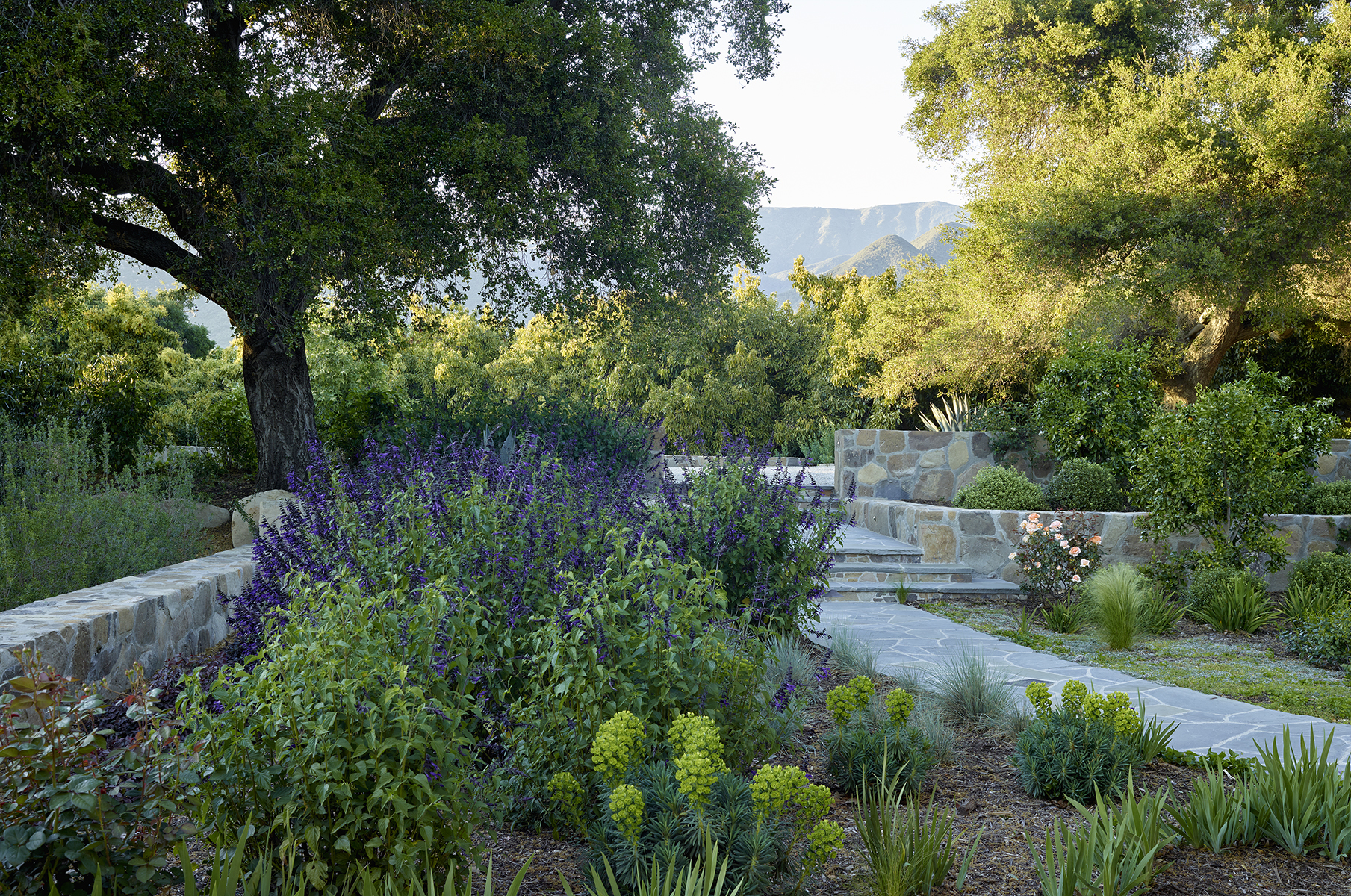
If you’re after a really strong sense of enclosure, there perhaps isn’t anything that better lends that feeling than a stone wall. The Santa Monica-based landscape architect, Pamela Burton of Pamela Burton & Company, built these low garden walls in a five-acre estate in Ojai, California, in order to “organize and highlight the garden rooms for each living space”, she says.
Constructed of stone from Bourget Brothers' Stoneyard in Santa Monica, the walls, she adds, “form terraces and enclosures that lead from one place to the next. The walls have been mortared and honed, and are deliberately small in scale - they’re not used as boundaries here, but instead guides for the different zones of the garden.
Stone will be a more expensive option, but has the advantage of a much longer lifespan than wood (and if noise is an issue, a solid wall is the only fabric that will really help to diffuse it). If you want height, Pamela recommends adding wooden fencing on top of the stone.
5. Plant some edible fencing
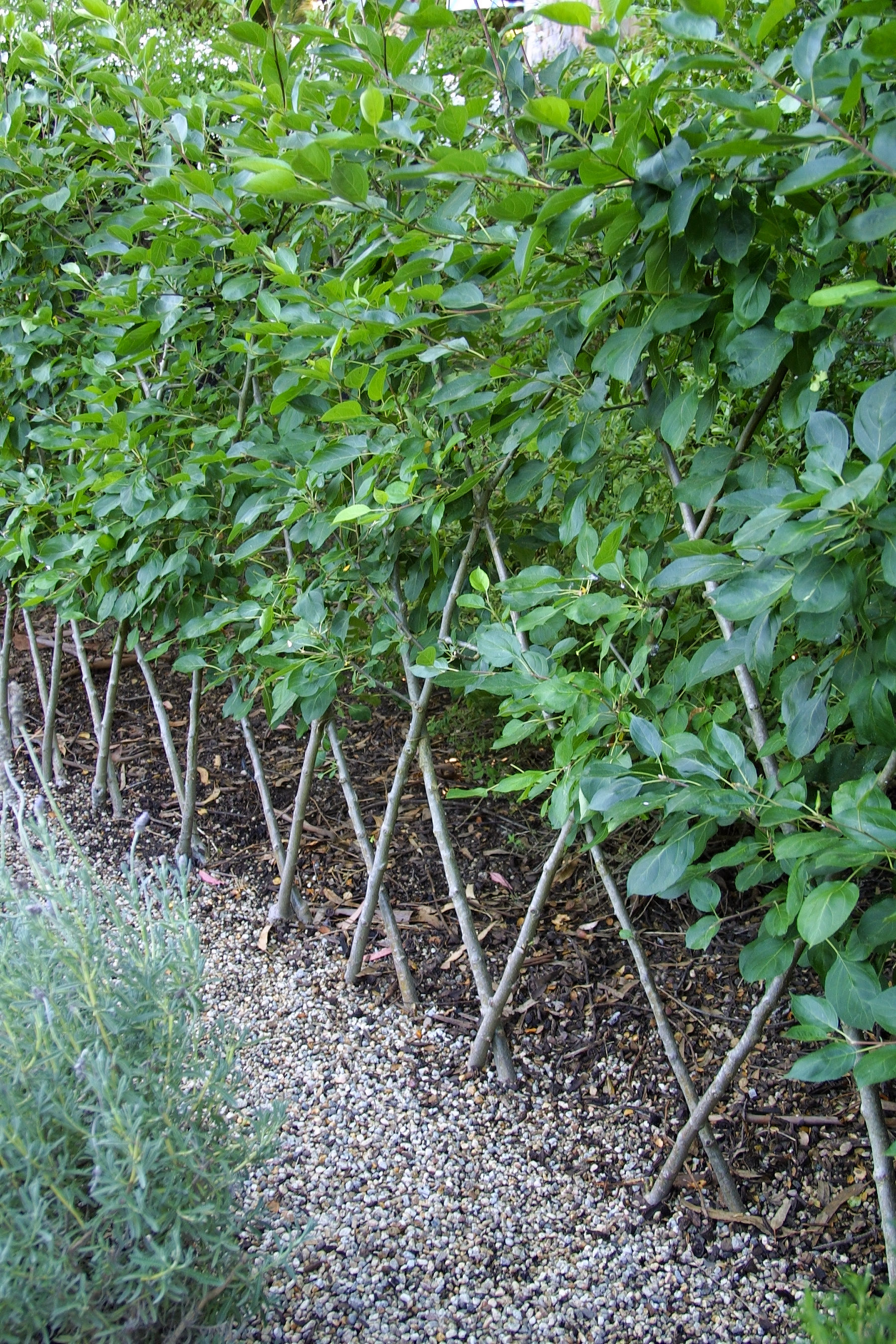
Why not get a little multitasking out of your fencing? Margie Grace, founder and design director of Santa Barbara-based Grace Design Associates, recommends planting edible fencing - a vertical take on the modern vegetable garden.
“You could espalier fruit trees [ie, train them to grow flat] on cables that are stretched between metal or wood posts,” Margie says. Or, she adds, you could graft them in a lattice pattern, as in the image here with crabapples, which she planted for biodiversity, “as the birds love to eat them (and they grow lovely large blooms)”.
Other candidates that work well for edible fencing, says Margie, are Fuji apples, figs, pears, apples, peaches and other stone fruit. You can also usually buy cordoned fruit trees - ie, grown in single vertical stems with very short branches - and plant as edible fences.
6. Add an arts and crafts sensibility with a picket fence
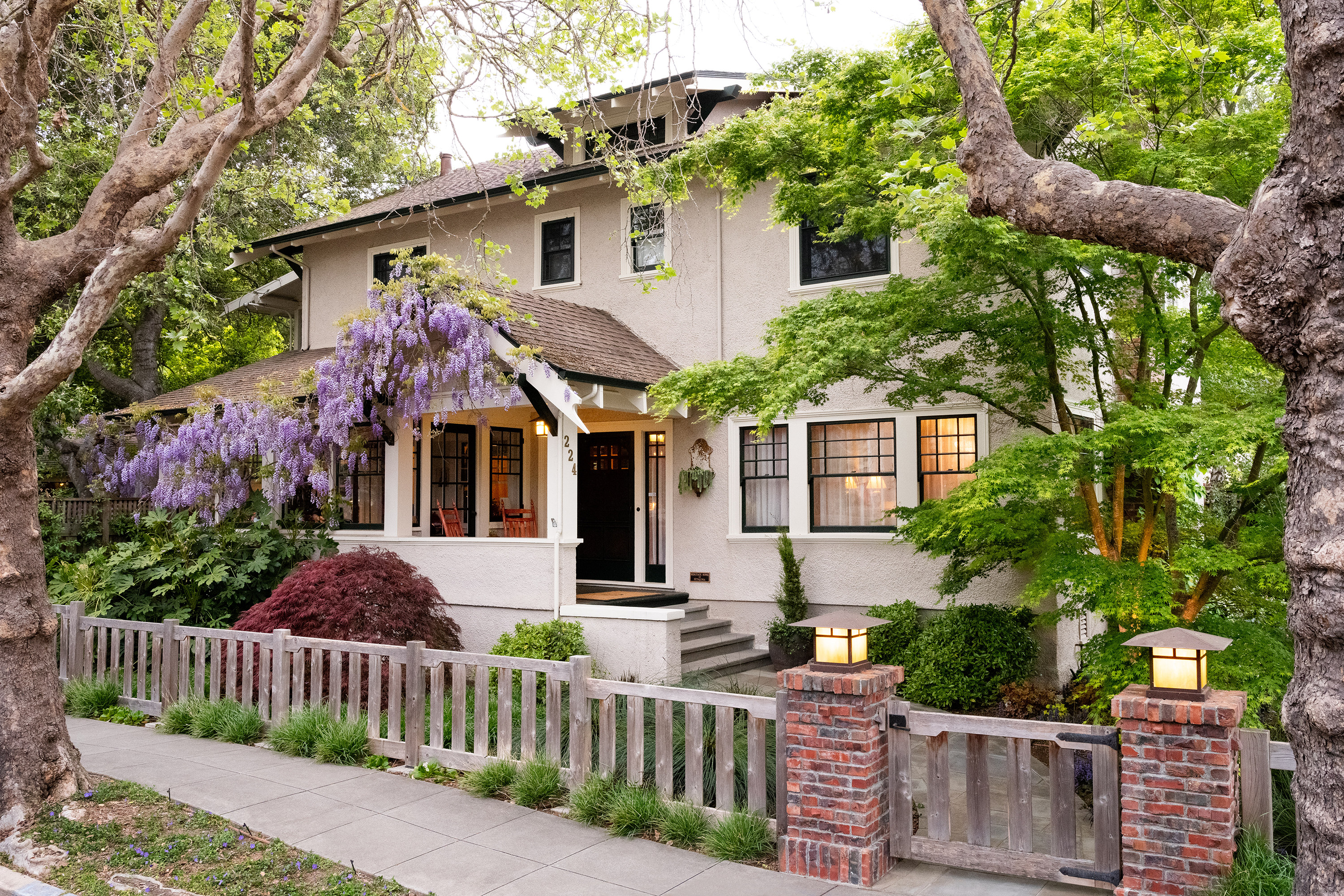
For a softer, more organic take on the all-American white picket fence, Dave Roche of Roche+Roche Landscape Architecture installed a Craftsman-style cedar fence around a 1911 Craftsman home, designed by architect Brainerd Jones, and located in Petaluma, 40 miles north of San Francisco.
“The fence design is low and fairly open, to present a friendly and welcoming face to the neighborhood,” Dave explains, “and the cedar wood is left unfinished to age to a beautiful silver-grey”. In keeping with the Arts & Crafts aesthetic, of which there is a rich tradition in the San Francisco Bay Area, the gate is flanked by clinker brick columns with Craftsman lanterns.
As the eye is drawn to the fencing, you might want to pay particular attention to your plantings in the area. Between the fence and the sidewalk, and just inside the fence, Roche+Roche planted Autumn Moor Grass and Pigsqueak, while in the background are Japanese maples, green Loropetalums, Spiraea, Rhododendrons, Mountain Pepper, and a climbing Hydrangea trained up the clinker brick chimney.
7. Plant a green wall
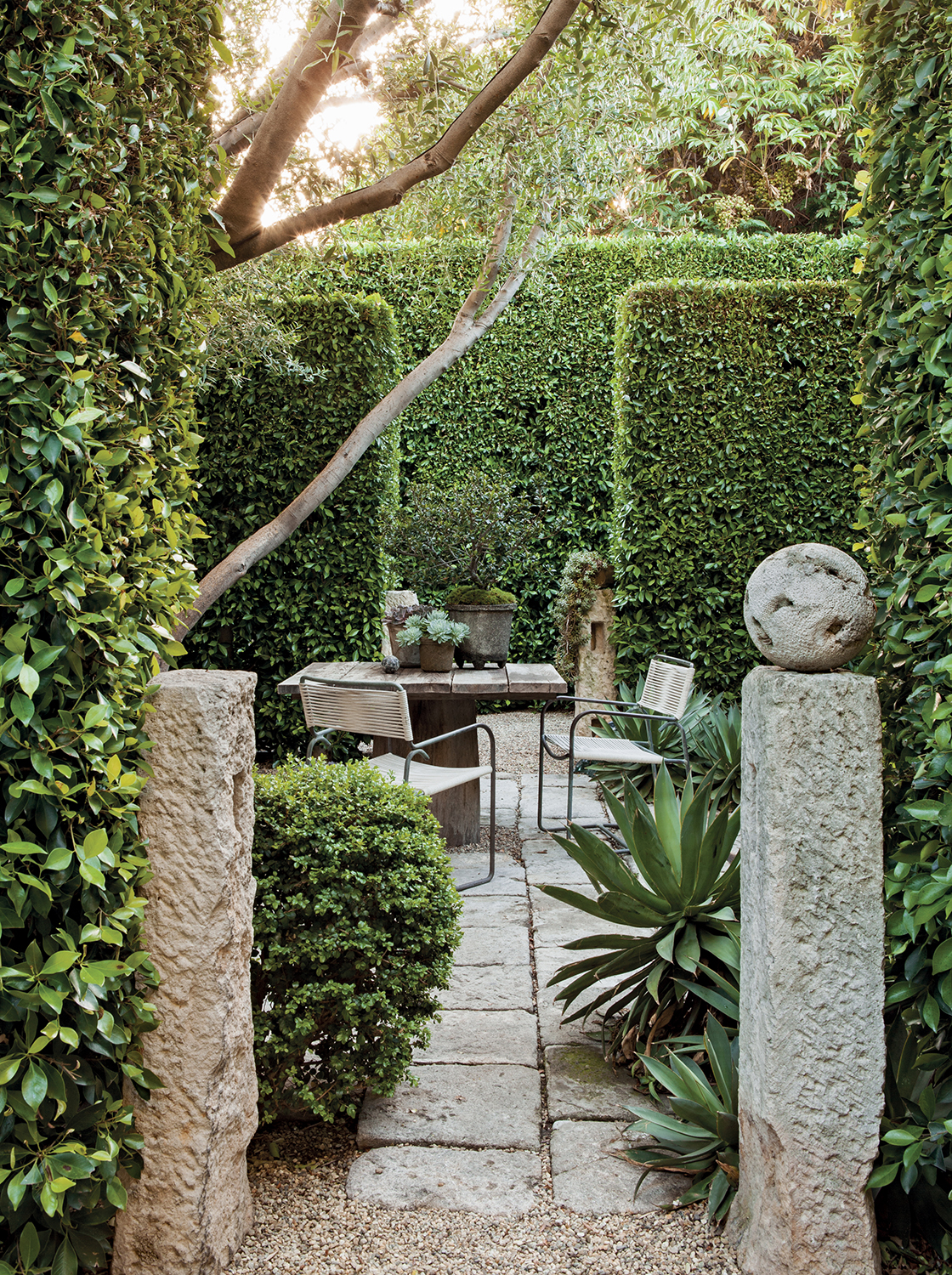
“Hedges can do some major weightlifting when it comes to creating privacy,” says Scott Shrader, the West Hollywood-based exterior designer and author of The Art of Outdoor Living: Gardens for Entertaining Family and Friends (Rizzoli). An added bonus is that hedges also conjure an illusion, he explains.
“Unlike a solid wall or fence, which can create a visual stopping point, a green wall helps your eye to keep going, which can help to make the property feel larger, and encourage the idea of a ‘borrowed’ landscape.”
And if you’re trying to maximize the amount of green in your garden, hedges would be the boundary of choice. Scott advises that privacy hedges should be allowed to grow to at least a mature 2 ft thick, and that most varieties appreciate full sun - Ficus, Podocarpus, Privet, and Carolina Cherry all work well here. Hedges are also really good at concealing security, for example, iron fences or chain links, which will remain completely invisible once the hedge is mature. As hopefully will you.
8. Soften your outlook with a wattle fence
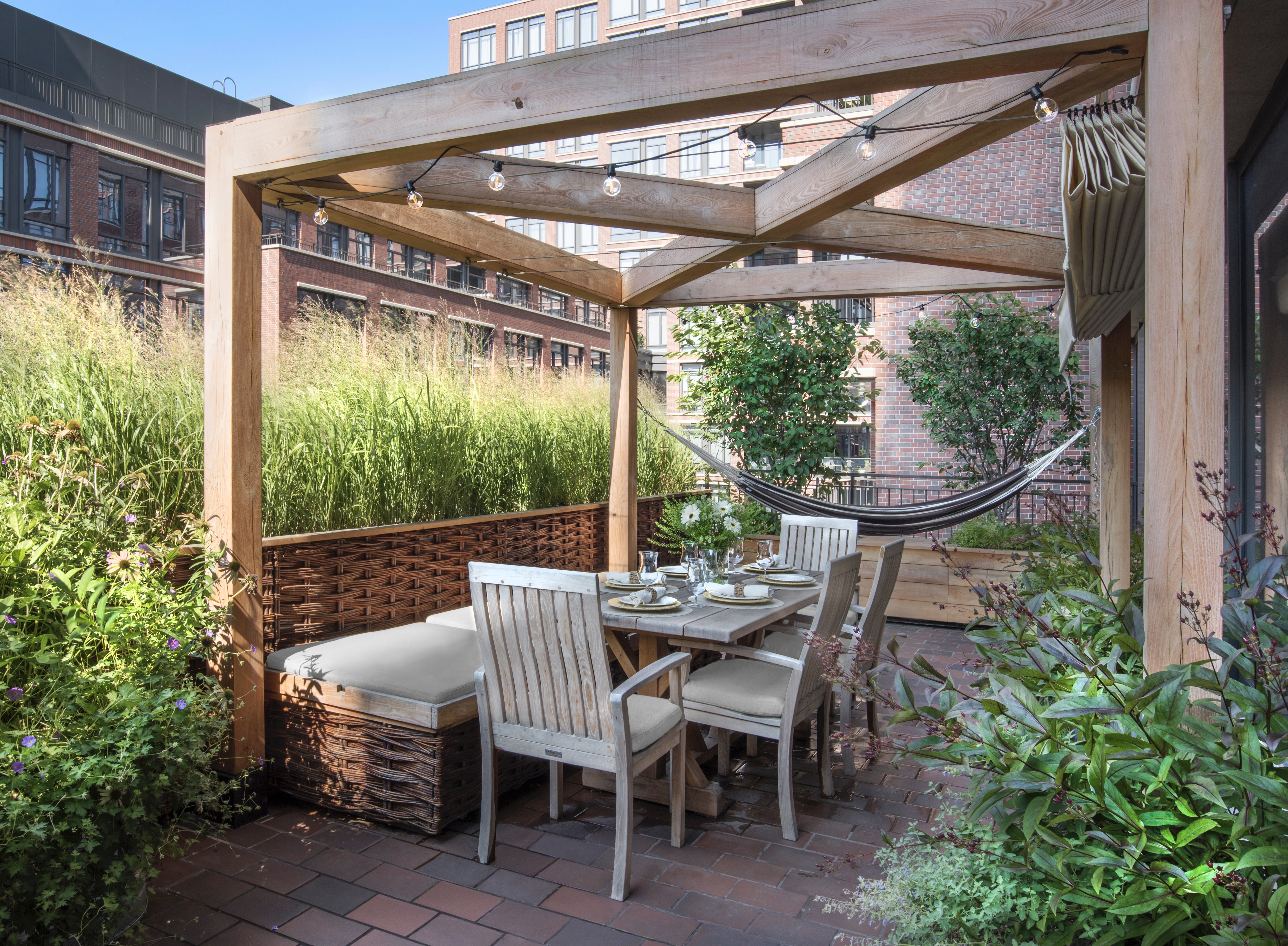
So you live in a fifth-floor apartment in Greenwich Village, but you want to create a farm-style aesthetic for your roof garden. It’s actually more doable than it might sound: inspired by the traditional wattle fences of the English countryside, the New York City-based landscape designer Todd Haiman created a wattle fence from woven willow.
Directly behind the wattle, he planted Panicum virgatum ’Shenandoah” grasses, which are low maintenance and almost four-seasonal. “Only a bit of wind is needed to get them dancing and fluttering, and they create a poetic contrast to the stark geometry of city buildings,” he says.
Thanks to their height, they offer privacy and “create a more attractive, soft edge to the terrace, as well as obscuring urban blight”. The fence itself was made by Water Willows, based in Buckinghamshire, UK, which Todd discovered at the Chelsea Flower Show in London.
“The beauty of this is a ‘soft’ woven fence with depth and character, rather than a concrete wall, which can create a sense of claustrophobia.” Todd recommends wattle especially for smaller gardens, “where you might be looking to create detail, complexity and texture in a perimeter wall”.
9. Use mesh for invisible fencing
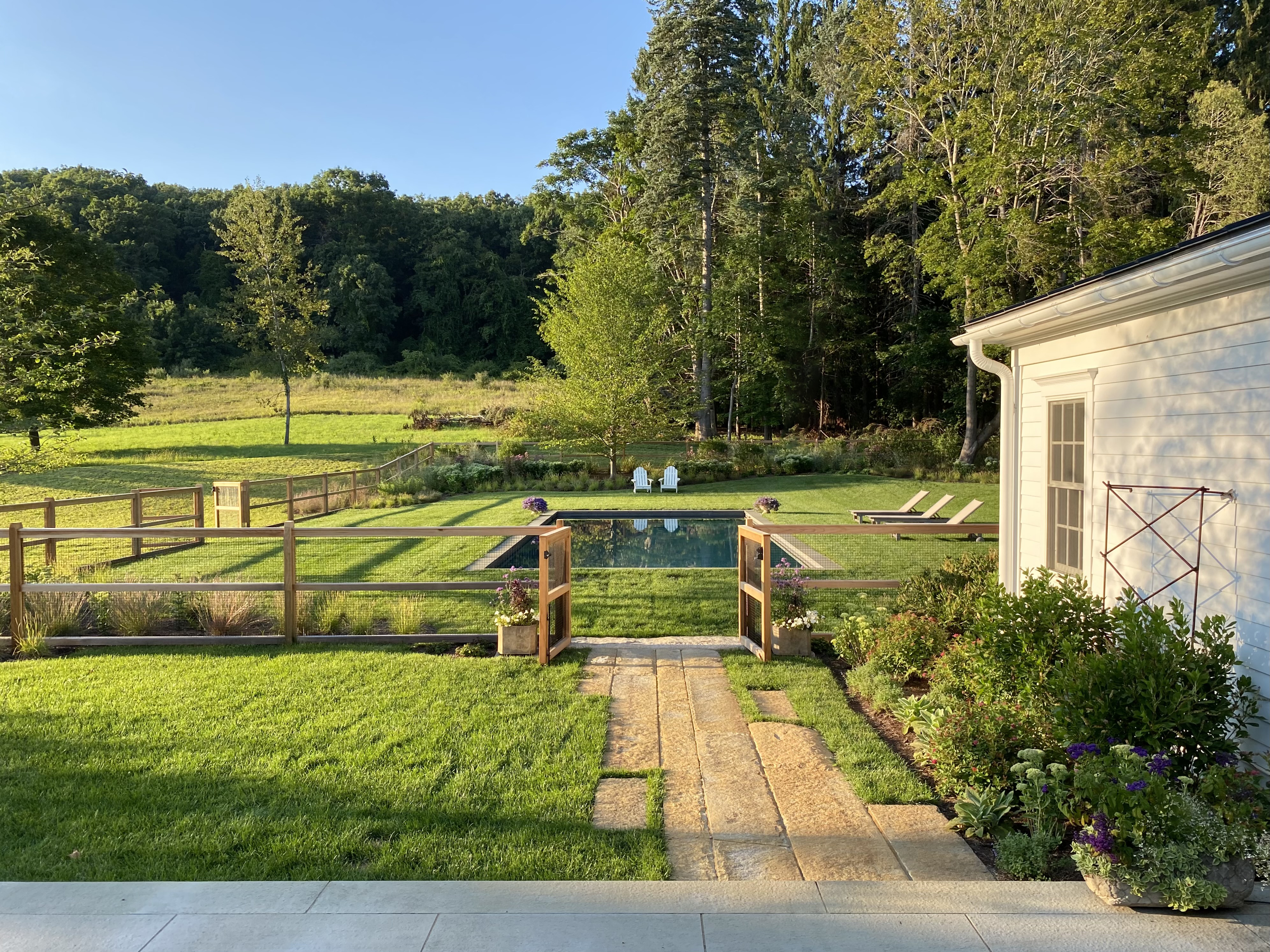
Imagine the dilemma: you’ve built a new pool set amongst the beautiful rolling hills of your grounds but regulations say you must enclose it in ugly safety fencing. The accomplished landscape architect Renée Byers found a solution that allows those incredible views to go unspoilt.
A bespoke cedar-wood rail-and-post structure was built all around the pool in a very clean, minimal style, so as to coordinate with the clean, simple lines of the pool and not to draw attention away from the land beyond. In order to meet the regulations, it was then wrapped with fine black mesh, which, says Renée, “Is almost invisible in certain lights”.
For architectural continuity, the same fencing design has also been used around the property’s kitchen garden, thus becoming even less conspicuous as the eye acclimatizes to it.
10. Add ornate bamboo panels
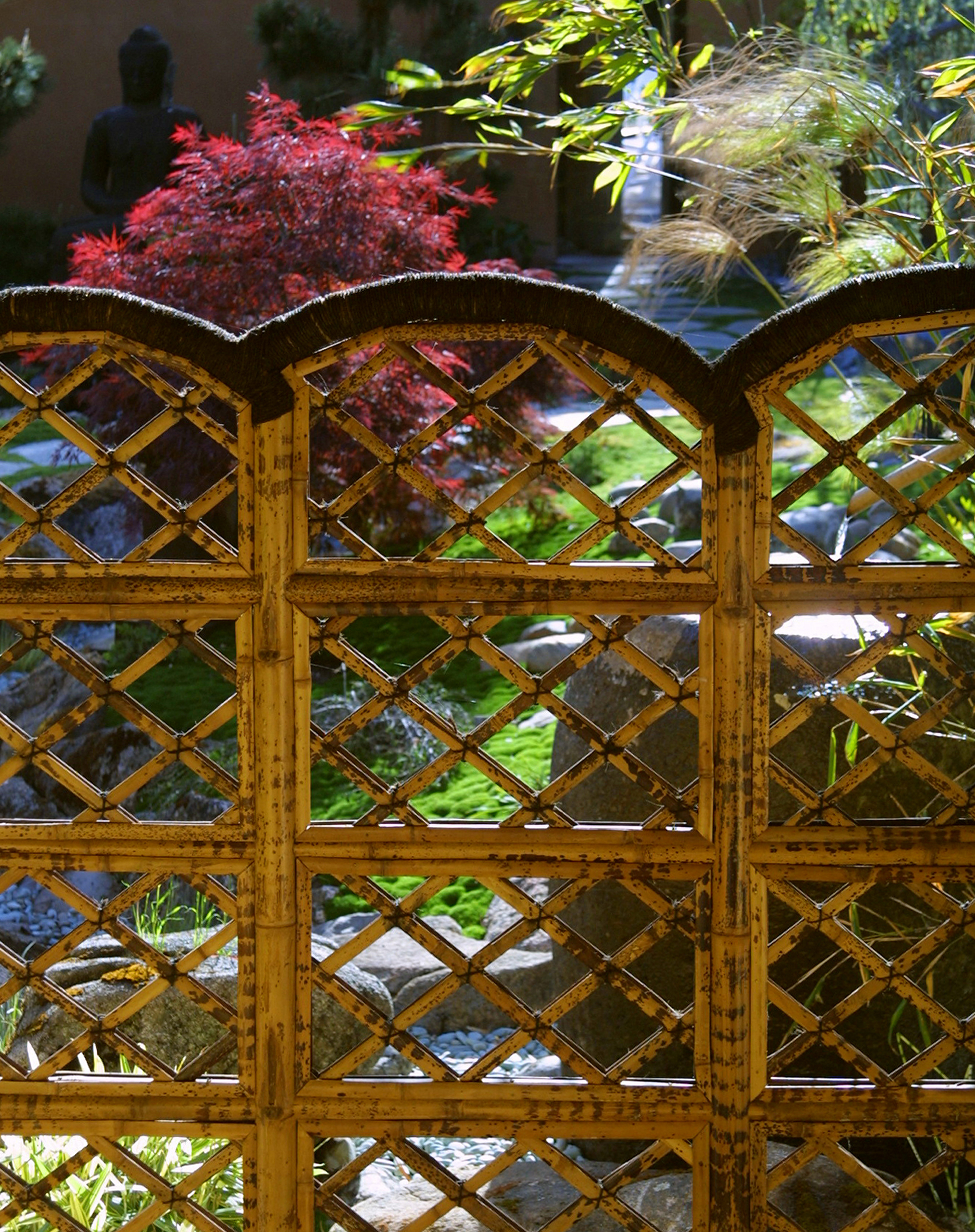
If you’re after a zero-maintenance, easy-to-instal fence solution made from a natural sustainable material, while also providing a distinct look to your garden, look no further than pre-built bamboo panels. “I use the panels for fencing, for plant support, or to create a fabulous entry point into a garden,” explains Margie Grace of Grace Design Associates, who recommends Master Garden Products’ plentiful options.
The panels come in a large variety of sizes, and the designs range from simple to elaborate; from strongly Japanese to more generic, which can be used with most garden themes. They’re especially useful with young gardens, “providing pattern and structure to the landscape composition”, says Margie.
Fleur Britten is a well-respected journalist who for years was the Senior Features Editor at Sunday Times Style. She is known as one of the smartest lifestyle journalists around, revered for being able to decode trends and report on new zeitgeists as they happen. She now writes for the Telegraph, Livingetc, Vogue, The Times, Harper's Bazaar and the Guardian.